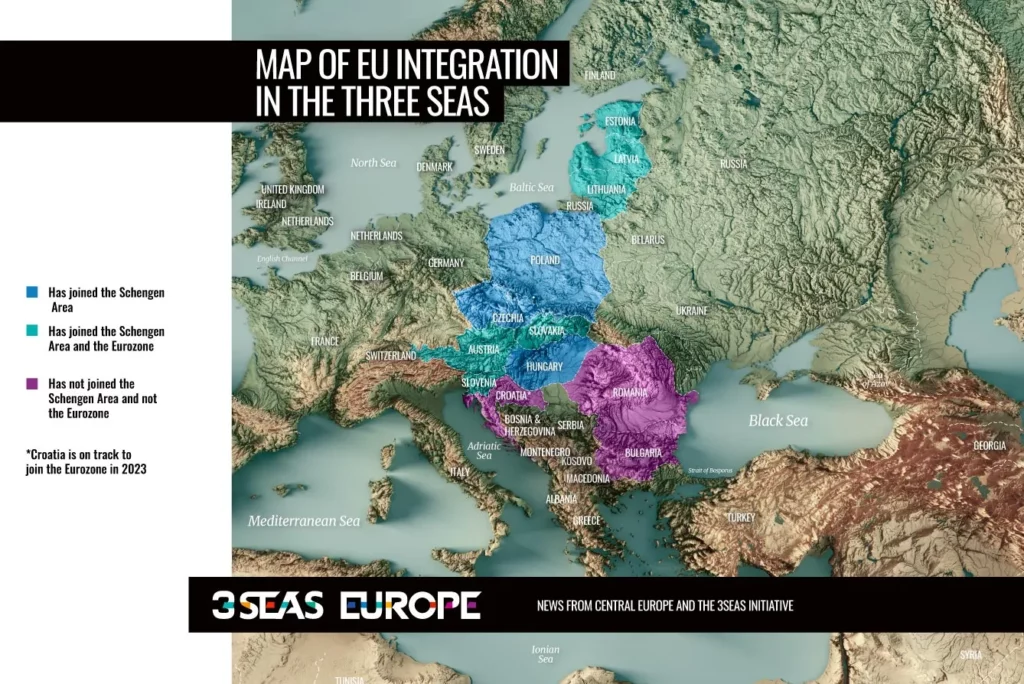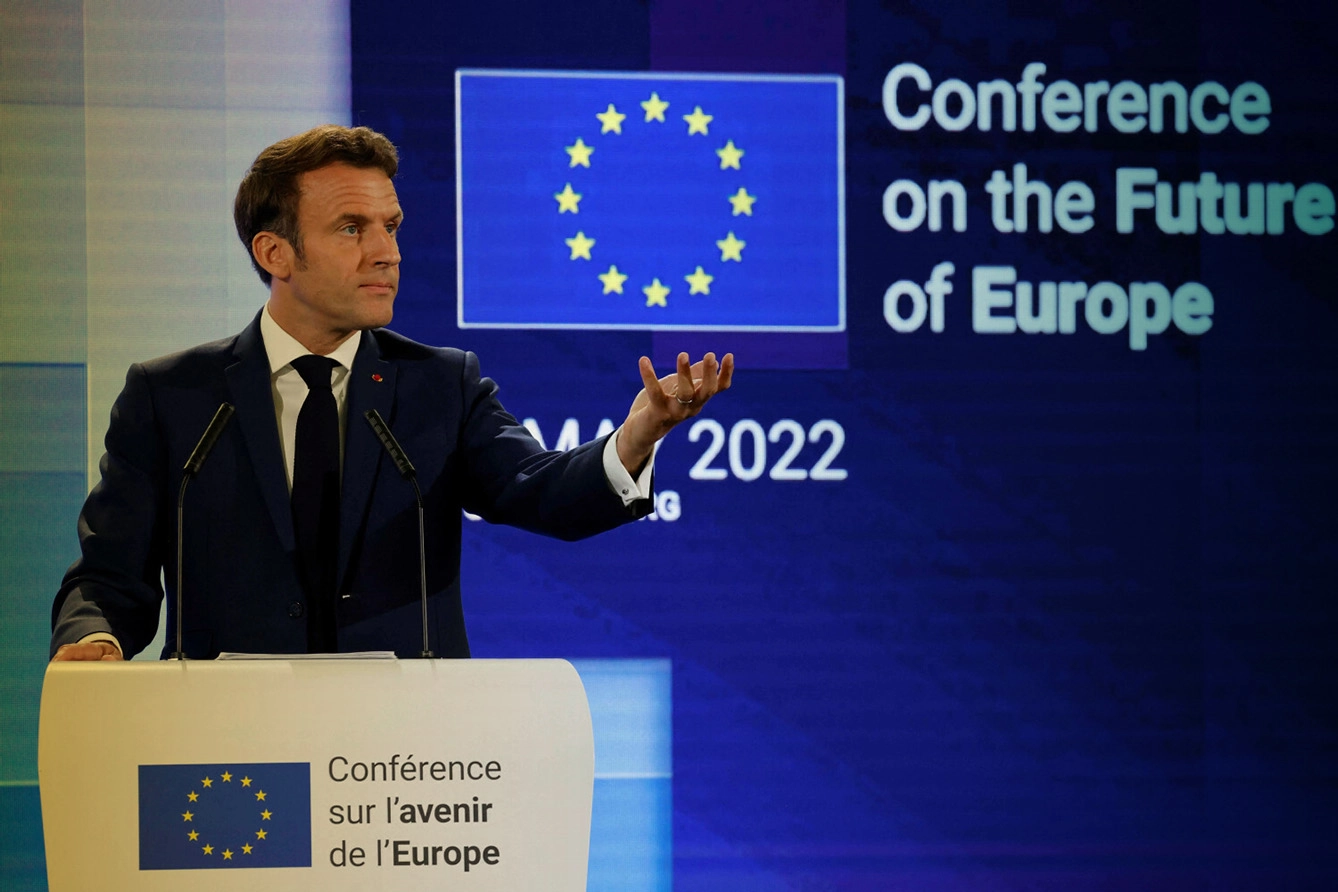After almost a year of citizen consultations and deliberations focused on what reforms of EU policies and institutions should be made at the medium to long term future of the EU, the Conference on the Future of Europe was concluded on May 9th, 2022.
The idea to organize such a conference was born in 2018 in the wake of two events that had shaken Brussels to the core: the UK’s decision to leave the EU and the rift between various EU member states and institutions on how to handle the European migration crisis of 2015.
Multi-speed Europe: the new path?
The aim of the conference was to breathe new air into EU cooperation, to find new pathways forward and to anchor the future direction in which the EU will be developing with its constituency, the people of Europe.
Unofficially, there seemed to be a consensus among the civil servants, the group which truly carries the heavy load in Brussels, that the conference was organized to either prevent that any other EU state will take the decision to follow in the UK’s footsteps and leave the union or that the conference’s main goal was to reform the EU in ways that the UK had always threatened to veto while it was still a member.
The conference’s final recommendations contained 325 recommendations meant to advance 49 goals. The document includes proposals such as the abolition of the national veto in almost all areas of EU decision-making, greater powers for the European Parliament, including the right to propose legislation and transnational lists for elections to the European Parliament.

A new direction?
On May 9th, Europe Day, the head of the country which holds the presidency of the Council of the EU, French president Emmanuel Macron, held a speech summarizing the recommendations that the Conference had arrived at. He then painted his own vision of how the EU should be reformed.
The French president laid out a far-sweeping plan to remake the EU into a multi-speed Europe with several different layers of integration that member states could choose from. Apart from the current union, Macron proposed for neighboring states with EU ambitions to be included in a new form of cooperation, an “EU light” of sorts and insinuated that this would be a particularly beneficial form of cooperation with the UK and Ukraine.
Regarding the union itself, Macron suggested that the idea of a multi-speed Europe should finally be given a chance. The concept is based on the notion that there are vastly different opinions between member states on how centralized the EU should be and in which areas EU integration should be allowed to progress much further than today.
In a multi-speed union, countries that wish to significantly advance their level of integration would be allowed to do so, while other countries could opt to stay out of these new structures.
According to most plans, the inner and more integrated ring would be based on the group of states that are members of the Eurozone. These states would go even further by forming a fiscal union in which national expenditure and tax rates would be set within their own group, paving the way for a form of “Eurobonds” to replace national bonds.
The Three Seas perspective
The Three Seas region represents almost the full spectrum of views on how far EU integration should go, with some of the Three Seas states being members of the Eurozone, others in the process eager applicants and some choosing to retain their national currencies for the foreseeable future. Some of the Three Seas states have yet to be included in the Schengen Area, meaning that citizens and goods from those countries still face border controls when entering the outer border of the Schengen group of 23 EU states.
Non-paper by Bulgaria, Croatia, the Czech Republic, Denmark, Estonia, Finland, Latvia, Lithuania, Malta, Poland, Romania, Slovenia, and Sweden on the outcome of and follow-up to the Conference on the Future of Europe pic.twitter.com/YMRd6SKcJI
— Sweden in EU (@SwedeninEU) May 9, 2022
Opinions in the Three Seas region are split on how to tackle a potential multi-speed Europe. There are voices which say that their country’s would have to strive to join the inner circle if a multi-speed Europe would be created. Other states argue that the concept itself should never be allowed to materialize, as it would create divisions within the union and form a group of member states that would be treated as second-class members without any real influence on the union.
Taking into consideration the vast array of opinions of Three Seas states on possible models of future EU integration, the response in the region to the recommendations made by the Conference on the Future of Europe and President Macron were surprisingly unified.
All Three Seas states apart from Austria and Hungary were among the signatories of a non-paper signed by 13 EU member states (also including Sweden, Norway, Denmark and Malta) calling on Brussels not to embrace “unconsidered and premature attempts to launch a process toward EU treaty change”.
Multi-speed Europe: unanimity required
The reaction of the Three Seas states indicates that they have not been convinced that EU treaty changes could move the organization into a position where further disunity, or even potential withdrawals from the Union, are less likely than today.
Even if the conference recommends the move to qualified majority votes, any treaty changes would have to be passed using the current system which requires unanimity in the voting process of the European Council.
The negotiations on which of the conference’s recommendations to implement are only about to start. If the end goal will turn out to include treaty changes, the powers who favor such a solution will have to work hard to convince the Three Seas states that it is the right path forward.
One thing is certain. The region will take every opportunity to make its voice heard. After more than a decade of EU membership, all Three Seas states know the weight that their vote carries. No matter which result the process started by the Conference of Europe will arrive at, all Three Seas states agree that what matters the most is not to lose additional member states and that is why their views on a multi-speed EU are guided by Bulgaria’s national motto “Unity Makes Strength”.







